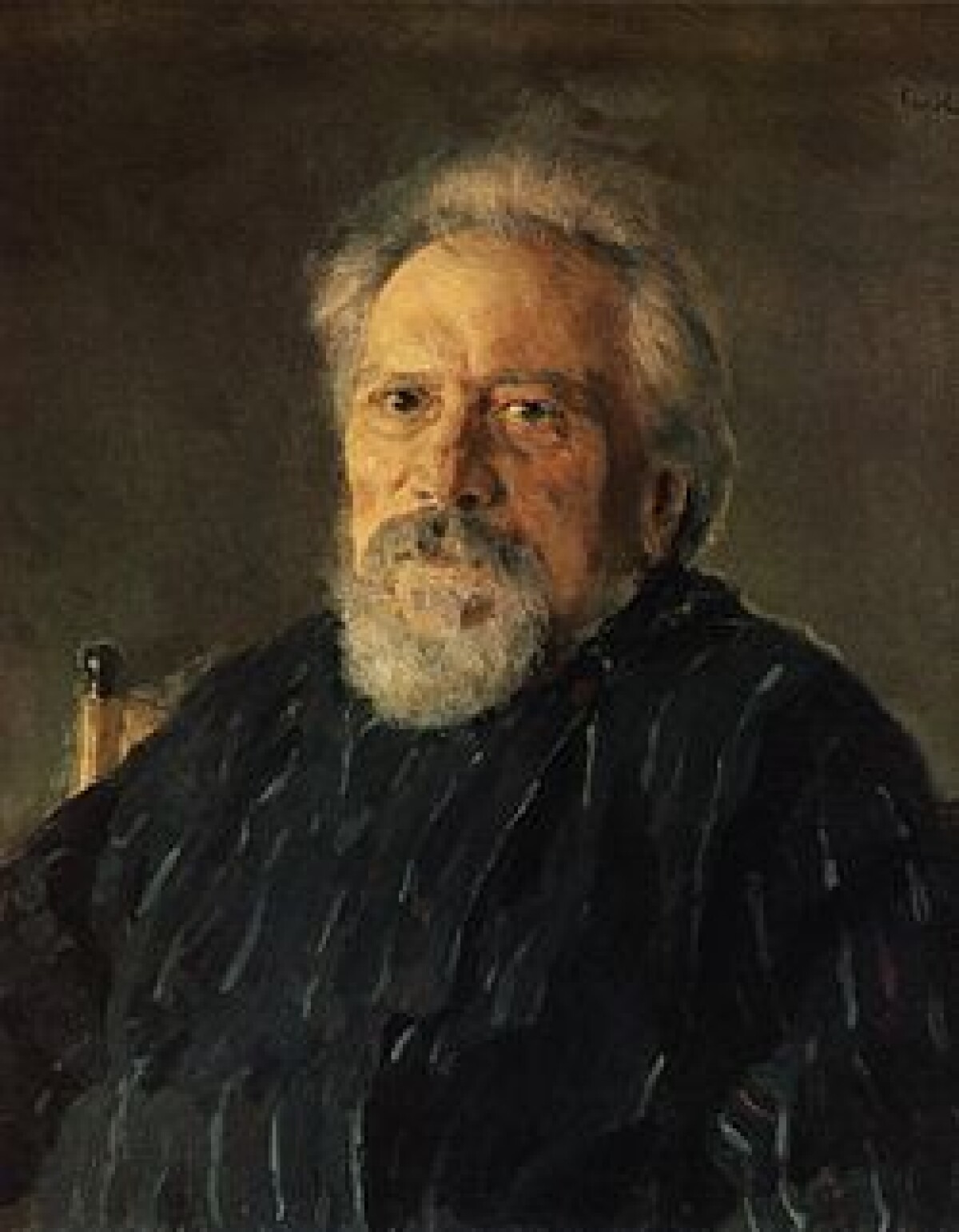Leskov Nikolai
Nikolai Semyonovich Leskov (Russian: Никола́й Семёнович Леско́в; 16 February [O.S. 4 February] 1831 — 5 March [O.S. 21 February] 1895) was a Russian novelist, short story writer, playwright, and journalist who also wrote under the pseudonym M. Stebnitsky. Praised for his unique writing style and innovative experiments in form, and held in high esteem by Leo Tolstoy, Anton Chekhov and Maxim Gorky among others, Leskov is credited with creating a comprehensive picture of contemporary Russian society using mostly short literary forms. His major works include Lady Macbeth of Mtsensk (1865) (which was later made into an opera by Shostakovich), The Cathedral Clergy (1872), The Enchanted Wanderer (1873), and The Tale of Cross-eyed Lefty from Tula and the Steel Flea (1881).
Leskov received his formal education at the Oryol Lyceum. In 1847 Leskov joined the Oryol criminal court office, later transferring to Kiev where he worked as a clerk, attended university lectures, mixed with local people, and took part in various student circles. In 1857 Leskov quit his job as a clerk and went to work for the private trading company Scott & Wilkins owned by Alexander Scott, his aunt's English husband.
His literary career began in the early 1860s with the publication of his short story The Extinguished Flame (1862), and his novellas Musk-Ox (May 1863) and The Life of a Peasant Woman (September, 1863). His first novel No Way Out was published under the pseudonym M. Stebnitsky in 1864. From the mid-1860s to the mid-1880s Leskov published a wide range of works, including journalism, sketches, short stories, and novels. Leskov's major works, many of which continue to be published in modern versions, were written during this time. A number of his later works were banned because of their satirical treatment of the Russian Orthodox Church and its functionaries. Leskov died on 5 March 1895, aged 64, and was interred in the Volkovo Cemetery in Saint Petersburg, in the section reserved for literary figures.
1862 saw the launch of Leskov's literary career, with the publication of "The Extinguished Flame" (later re-issued as "The Drought") in the March issue of Vek magazine, edited by Grigory Eliseev, followed by the short novels Musk-Ox (May 1863) and The Life of a Peasant Woman (September, 1863). In August the compilation Three stories by M. Stebnitsky came out. Another trip, to Riga in summer, resulted in a report on the Old Believers community there, which was published as a brochure at the end of the year.
In February 1864 «Biblioteka Dlya Chteniya» magazine began serially publishing his debut novel No Way Out (the April and May issues of the magazine, stopped by the censors, came out in June). The novel bore "every sign of haste and literary incompetence," as its author later admitted, but proved to be a powerful debut in its own way. No Way Out, which satirized nihilist communes on the one hand and praised the virtues of the common people and the powers of Christian values on the other, scandalized critics of the radical left who discovered that for most of the characters real life prototypes could be found, and its central figure, Beloyartsev, was obviously a caricature of author and social activist Vasily Sleptsov. All this seemed to confirm the view, now firmly rooted in the Russian literary community, that Leskov was a right-wing, 'reactionary' author. In April Dmitry Pisarev wrote in his review "A Walk In the Garden of Russian Literature" (Russkoye Slovo, 1865, No.3): "Can any other magazine be found anywhere in Russia, besides The Russian Messenger, that would venture to publish anything written by and signed as, Stebnitsky? Could one single honest writer be found in Russia who would be so careless, so indifferent regarding his reputation, as to contribute to a magazine that adorns itself with novels and novellas by Stebnitsky?" The social democrat-controlled press started spreading rumours that No Way Out had been 'commissioned' by the Interior Ministry's 3rd Department. What Leskov condemned as "a vicious libel" caused great harm to his career: popular journals boycotted him, while Mikhail Katkov of the conservative The Russian Messenger greeted him as a political ally.
Share:









